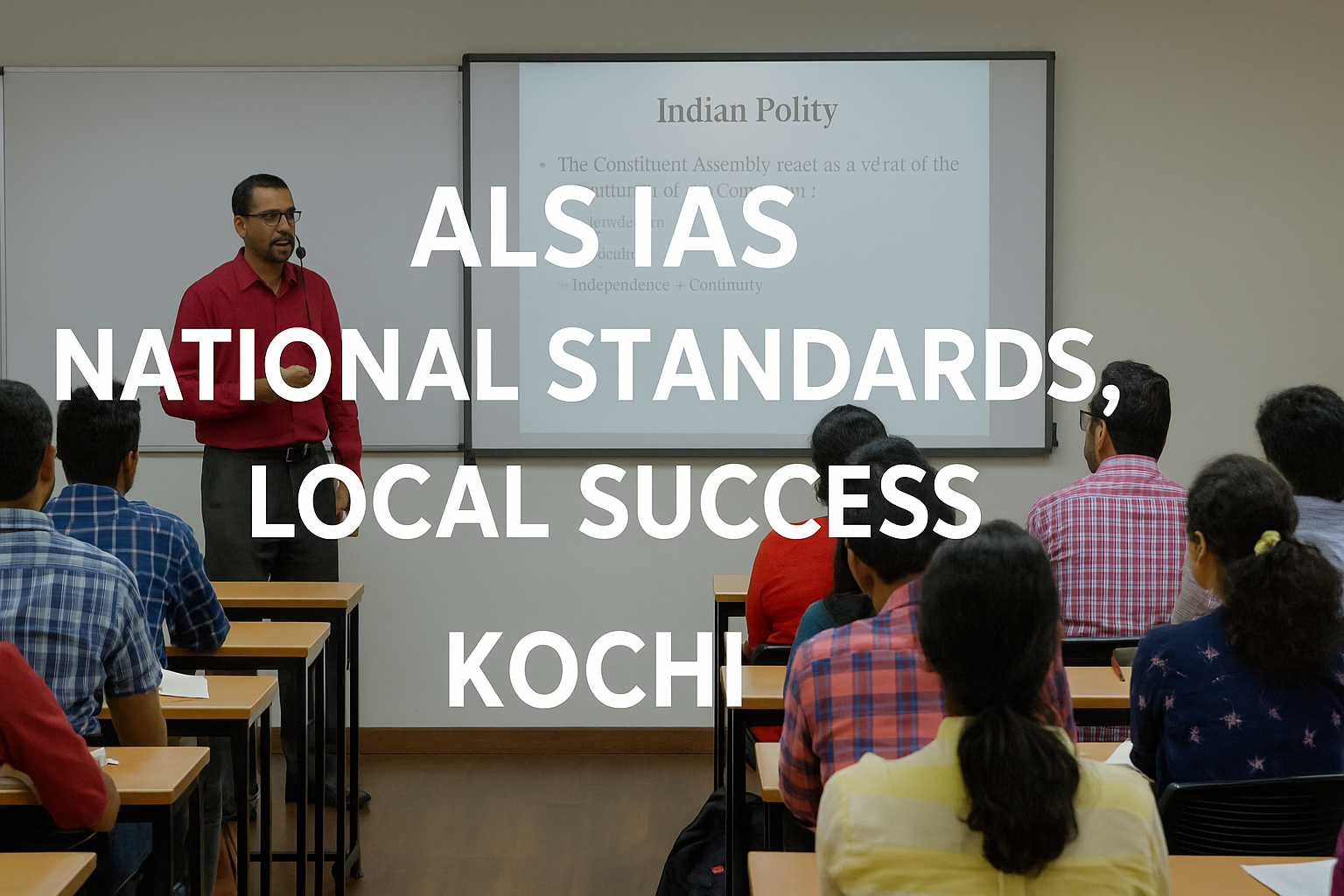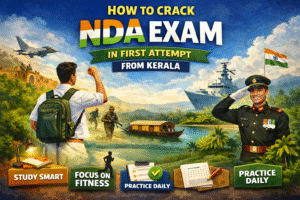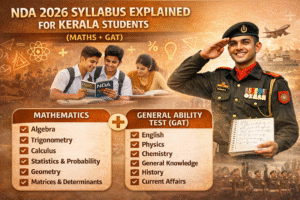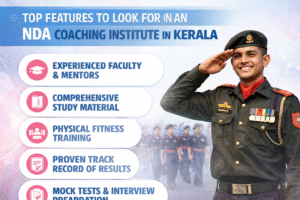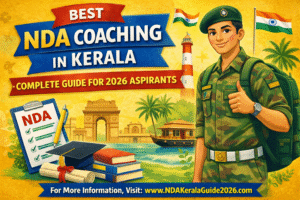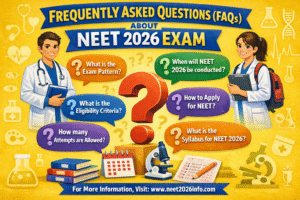Why ALS IAS in Kochi?
Kochi is now a serious UPSC hub—accessibility, peer community, and balanced living costs. ALS IAS Kochi leverages the national system of structured content, uniform quality standards, and central academic oversight, while localizing delivery for Kerala aspirants with state-centric examples, current affairs capsules, and bilingual support where useful.
What this means for you
All-India pedagogy → predictable quality, proven exam alignment
Kochi-aware guidance → case studies, governance examples, and issue briefs relatable to Kerala
Systematic testing & feedback → analytics that actually drive improvement
Mentor access → study-plan corrections and answer-writing reviews
Courses & Pathways
1) GS Foundation & Prelims (with CSAT)
NCERT-to-advanced coverage for GS I–IV fundamentals
Weekly quizzes + monthly full-length Prelims tests
CSAT Labs: quant basics, DI, logical reasoning, reading drills for non-math backgrounds
2) Integrated Prelims-cum-Mains (PCM)
One cohesive calendar minimizing duplication
Answer-Writing from Week 1 (10-12 lines → 150/250-word discipline)
Revision Sprints before Prelims and Mains
3) Mains Advance (GS I–IV + Essay)
Theme-wise modules mapped to syllabus & PYQs
Daily Answer Writing (DAW) with rubric-based feedback
Ethics workbook with stakeholder mapping + real caselets
4) Optional Subject Mentoring*
Foundation classes + enrichment + test series with model answers
Source sheets: key books, journals, committees, government reports
Check the current optionals & schedules with the Kochi centre before enrolling.
5) Test Series (Prelims & Mains)
UPSC-like difficulty and progressive papers
Post-test diagnostics: accuracy vs. coverage, topic heat-maps, rank sheets
Remedial classes triggered by common error clusters
6) Interview Guidance (Personality Test)
DAF mining, panel simulations, situational rounds
Issue briefs (Kerala + national) for structured opinions
Communication drills for clarity, calmness, and time discipline
Teaching & Mentorship Model
Five pillars of the ALS approach
Syllabus discipline: every session tied to a line of the UPSC syllabus
PYQ gravity: 10+ years of PYQs guide depth and emphasis
Source economy: concise booklist + curated digital notes—no sprawl
Practice-first: DAW, case studies, and objective sets from the start
Feedback loop: written comments + mentor calls for course correction
Mentor support you can expect
Baseline diagnostic + 12-month road-map
Fortnightly/monthly reviews to fix drift
Pre-mock escalation for last-mile polish
Current Affairs, Essay & Ethics—The Kochi Advantage
Current Affairs Engine
Daily briefs (PIB, PRS, editorials) → weekly issue dossiers → monthly compendiums
Value-adds: schemes, data points, NITI/committees, SDGs, Kerala context
Essay Clinics
Theme deconstruction → outline → para flow → conclusion types
Balanced coverage across philosophy, society, governance, sci-tech, economy
Evidence bank: constitutional ideals, anecdotes, quotes, verified data
Ethics (GS-IV)
Practical frameworks (utilitarianism, deontology, virtue, stewardship)
Kerala-context caselets (coastal management, local governance, disaster response)
Templates for part (a) & case studies (b) with “way-forward” craft
Timelines & Study Plans
Standard (12-month) track
Months 1–3: NCERT consolidation + GS basics + CSAT routine
Months 4–6: Standard texts + DAW start + Prelims mini-mocks
Months 7–9: Mains depth + Essay/Ethics + mixed mocks
Months 10–12: Prelims sprint → post-Prelims Mains sprint & FLTs
Working professional track
Hybrid mode with weekend long sessions, weekday micro-tasks (90 min)
Buffer weeks before full-length mocks; recordings for catch-up
Learning Resources & Delivery
Clean, exam-ready handouts and one-pagers
PYQ labs for demand reading and pattern sense
Doubt engine: classroom forum + mentor hours + class-wise groups
Modes: Classroom (Kochi) + live/recorded digital access
Admissions & Scholarships (Indicative)
Admissions: counselling + (where applicable) diagnostic test
Scholarships: test-linked/merit/need-based (vary by cycle)
Installments: centre-policy based; confirm during counselling
Always verify batch start dates, optional lists, and scholarship windows with the Kochi office.
How to Choose Your Batch (Quick Checklist)
Faculty continuity across the year
Depth of post-test analysis (not just question papers)
Proof of answer-checking rigor (sample copies + rubric)
Realistic calendar with revision windows and buffers
DAF-oriented interview guidance availability
Why Students Pick ALS IAS Kochi
Nationally consistent content standards
Kerala-aware examples and case studies
Practice-heavy culture—DAW from Day 1
Mentor access and personal plan corrections
Analytics that matter to improve ranks, not vanity metrics
Frequently Asked Questions (FAQ)
1) Is ALS IAS Kochi good for beginners?
Yes. The foundation track starts from NCERTs and builds up systematically with guided practice.
2) Can working professionals manage?
Hybrid delivery, weekend-heavy schedules, and recorded backups support full-time employees.
3) How important is the test series?
It is essential. You learn coverage discipline, time management, and question sense with feedback.
4) Which Optional subjects are available?
Offerings vary by cycle. Confirm the current Optional list and the test series calendar with the centre.
5) How are current affairs covered?
Daily briefs feed into weekly dossiers and monthly compilations integrated with answer-writing.
6) Is CSAT covered for non-math students?
Yes—dedicated CSAT labs for quant, DI, reasoning, and reading comprehension.
7) Does ALS IAS help with interview prep?
Yes—DAF mining, mock panels, situational rounds, and feedback on presence & articulation.
8) What is a realistic preparation time?
First-time aspirants usually need 10–14 months; focused repeaters often need 6–9 months.
9) Can I switch batches mid-course?
Centre policy varies. Ask about transfer rules, recording continuity, and mentor carry-over.
10) What booklist should I use?
Follow a lean, high-yield list recommended by the academy; avoid accumulating redundant sources.
11) Do you provide doubt-clearing?
Yes—class forums, mentor hours, and scheduled doubt sessions.
12) How do I track improvement?
Through post-test analytics: accuracy vs. speed, topic heat-maps, rank sheets, and mentor reviews.

